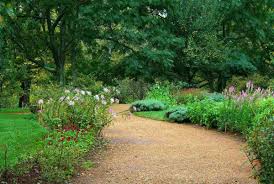Yard waste is often overlooked, but it contributes significantly to the waste generated in the U.S. This article explores the environmental impact of yard waste and provides eco-friendly solutions for its proper disposal and management.
The Environmental Impact of Yard Waste
Yard waste may seem insignificant, but it has a substantial impact on the environment. Improperly managed yard debris, such as grass clippings, leaves, branches, and garden waste, can cause imbalances in ecosystems when transported through water systems. Additionally, organic waste decomposition in landfills releases methane, a greenhouse gas that contributes to climate change.
Composting Yard Waste
Composting yard waste is an effective and eco-friendly way to dispose of organic materials. Composting allows for the natural decomposition of yard waste, creating nutrient-rich compost that benefits the soil and plants. By combining yard waste with food scraps, you can divert a significant amount of waste from landfills while producing natural fertilizer for your garden.
The Benefits of Composting
Composting offers several benefits for both the environment and your garden. It reduces waste sent to landfills, conserves landfill space, and decreases methane emissions. Compost enriches the soil, improves moisture retention, enhances nutrient availability, and promotes healthy plant growth. Additionally, it helps suppress plant diseases and reduces the need for chemical fertilizers.
Mulching the Landscape
Mulching provides a natural recycling method for yard waste while benefiting your landscape. By spreading mulch on the soil surface, you can achieve various advantages.
Advantages of Mulching
Mulching offers numerous advantages for your garden and plants. It helps prevent water loss through evaporation, reduces soil crusting, and minimizes weed growth by blocking sunlight. Mulch also moderates soil temperature, protecting plant roots from extreme heat or cold. Furthermore, it minimizes soil erosion and enhances soil structure and nutrient content as it decomposes.
Types of Yard Waste Suitable for Mulching
Various yard waste materials can be used for mulching purposes. These include tree bark, branches, sticks, grass clippings, leaves, and shrubs. Recycling these materials as mulch provides a sustainable way to manage yard waste while improving your landscape.
Grasscycling: Recycling Grass Clippings
Grasscycling is an eco-friendly practice that involves leaving grass clippings on the lawn after mowing. This simple technique offers multiple benefits.
Benefits of Grasscycling
Grasscycling reduces waste and landfill contributions while providing natural nutrients to your lawn. By leaving grass clippings to decompose, you eliminate the need for bagging and disposal, saving time and effort. Grasscycling nourishes your lawn without relying on chemical fertilizers, improving its overall health and appearance.
Donating Yard Waste to Community Gardens or Neighbors
If you’re unable to manage your own yard waste, donating it to community gardens or neighbors is a sustainable alternative.
Benefits of Yard Waste Donation
Donating yard waste to community gardens supports local initiatives and reduces waste sent to landfills. Many community gardens have compost piles and gladly accept locally sourced yard waste, providing a valuable resource for their gardening projects. Additionally, connecting with neighbors who can utilize your yard waste fosters community engagement and a sense of environmental responsibility.
Dropping Off Yard Waste at Collection Sites
Local yard waste collection sites and composting facilities offer convenient options for responsible yard waste disposal.
Utilizing Collection Sites for Yard Waste
Collection sites provide a centralized location to drop off yard waste for proper recycling or composting. Contact your local authorities to understand their guidelines, collection schedules, and accepted types and quantities of yard waste. These facilities often repurpose green waste into mulch or compost, promoting sustainable waste management practices.
Tips for Effective Yard Waste Management
Implementing proper yard waste management practices can help reduce waste and its environmental impact.
Tips for Managing Yard Waste
- Follow appropriate mowing and pruning techniques to minimize waste generation.
- Avoid over-fertilizing and over-watering, promoting healthy plant growth while protecting the environment.
- Refrain from burning leaves or any yard waste, as it pollutes the air and poses fire hazards.
- Minimize pesticide use to preserve beneficial insects and maintain a healthy ecosystem.
Conclusion:
By adopting eco-friendly practices for yard waste management, you can significantly contribute to waste reduction and environmental conservation. Whether through composting, mulching, grasscycling, donating to community gardens, or utilizing collection sites, you can make a positive impact on the environment while maintaining a healthy and beautiful yard.







